
Covid-19 travel and tourism research
Service design and information provision requirements based on proxemics
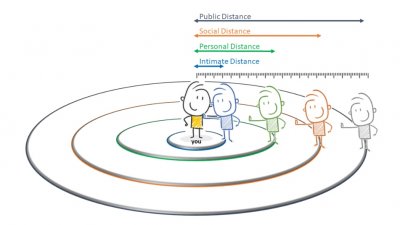
Dr Brigitte Stangl, Dr Margit Kastner (WU Wien) and Owen Grainger-Jones are examining the change of proxemics introduced by Edward Hall in the early 60s. Potential changes of the four personal interaction zones intimate-, personal-, social- and public distance will be revealed in the context of tourism. A picture-based survey-approach is used to compare pre and post Covid-19 perceptions and differences between segments visiting museums will be revealed. Results of the study will allow to give suggestions concerning consequences for the design of services, such as museums, and information provision requirements post Covid-19.
Consumer purchasing intention in restaurants and hotels post-Covid-19 lockdown
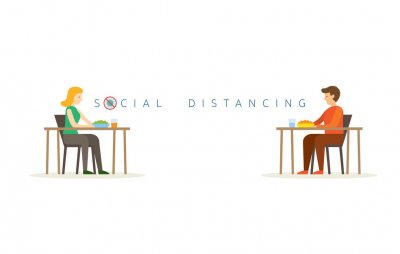
Dr Yoo Ri Kim and Dr Anyu Liu are working on an experimental study regarding understanding consumers’ purchasing intention in restaurants and hotels after the Covid-19 lockdown measures are lifted. This study aims to provide both theoretical and practical implications for the hospitality industry after the lockdown measures have been lifted by informing consumer behavioural intention on social distancing measures and promotion offers.
Innovative pricing: Pay-as-you-wish as a means to attract customers to museums post-Covid-19
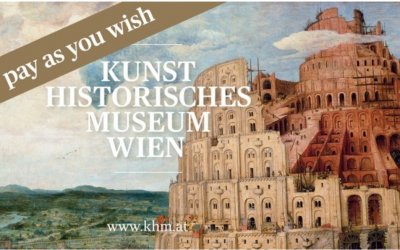
All around the globe tourism organisations are looking for ways to build trust to get customers back to travel, to visit sights, and to generally engage in tourism related activities. Dr Brigitte Stangl and Dr Margit Kastner (WU Vienna) are examining the implementation of innovative pricing strategies namely Pay-As-You-Wish (PAYW) for example for museums. PAYW brings benefits for suppliers and consumers. Organisations attract consumers, who can pay the price they can afford (considering the impact the lockdown had on the income of many people). Generated revenue allows organisations to cover costs and to continue operating the business in the usual quality, diversity, and excellence.
Pandemics, tourism and global change: a rapid assessment of Covid-19

Professor Daniel Scott (pictured) co-authored the assessment of Covid-19 on the tourism industry that is currently the most read journal article in the world in this topic. It reviews how the current ban on travelling is affecting the tourism industry and what the consequences for the sector may be.
Connecting with nature during times of crisis: Understanding alternative use of spaces of leisure and recreation during lockdown
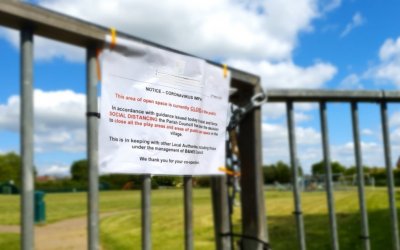
Professor Caroline Scarles and Dr Tracy Xu are working in collaboration with Dr Birgitta Gatersleben and Dr Kayleigh Wyles from the School of Psychology to investigate the impact of COVID-19 on people’s use of local, everyday spaces of leisure and recreation. The research seeks to understand how behaviour during lockdown is significantly different to pre-lockdown behaviours and how experiences during lockdown may influence changes in behaviour going forward. This is an ongoing survey and results will be shared in due course.
Impact of Covid-19 mobility restriction in China on people’s travel intention – Evidence from Weibo data

Dr Anyu Liu (pictured) and Dr Yoo Ri Kim with collaborators in China are working on a project to investigate the impact of the Covid-19 mobility restriction on people’s travel intention. The travel intention is measured by the daily sentiment score of 31 provinces/municipalities in China and the casual relationship is examined by the spatial DID approach. The findings of the ongoing study will be updated in due course.
Impact of Covid-19 on Asia Pacific visitor forecasts 2020-2024

Professor Gang Li (pictured) and Dr Anyu Liu, in collaboration with Professor Haiyan Song’s team at The Hong Kong Polytechnic University, produced Asia Pacific Visitor Forecasts 2020-2024 for the Pacific Asia Travel Association (PATA). The report has paid particular attention to the impact of Covid-19 on the visitor demand and the market recovery in 39 destinations of the region. Both Professor Li and Dr Liu were invited as panellists to PATA’s webinar on this topic on 14 May.
Examining the resilience of hospitality companies during the Covid-19 pandemic
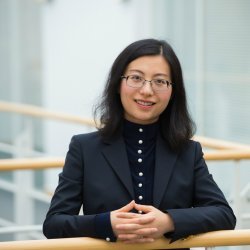
Dr Tracy Xu (pictured) is working with Mark Ashton and Dr Yanning Li to study the resilience capacity and real-time adaptive strategies hospitality organisations need to have in order to sustain in the Covid-19 pandemic. This project aims to provide insights into how business strategies for hospitality organizations may be better formulated to build sustainable competitive advantage.
Virtual experiences of travel during lockdown
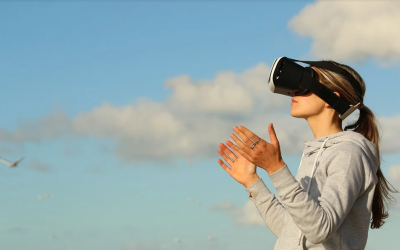
Professor Caroline Scarles, Drs. Tracy Xu and Daisy Liu and Ms Ayeisha Green are collaborating to investigate how experiences of virtual travel effect wellbeing during lockdown and how these experiences may affect travel planning and decision making going forward as the tourism industry moves into a post-COVID-19 era. This is an ongoing survey and the results will be shared in due course.
Changes in air passenger demand as a result of the Covid-19 crisis
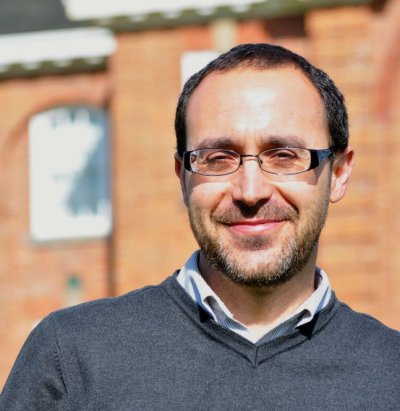
Using data on 5,000 million air passenger searches on Skyscanner, we found that desire to fly in 2020 drop by 50% in Asia and 30% in Europe and the Americas, and intention to fly dropped by a further 20%, while most source markets remain optimistic about air travel during the last quarter of 2020. Professor Xavier Font (pictured) and Dr Inma Gallego developed a methodology to detect the reactivation of tourist markets to help mitigate the effects of the COVID-19 crisis, with a traffic light dashboard that shows how destination managers can use air travel Big Data.
Surrey Living Lab funded Doctoral Researcher investigates the impact of Covid-19 on travel behaviours and perceptions towards remote working
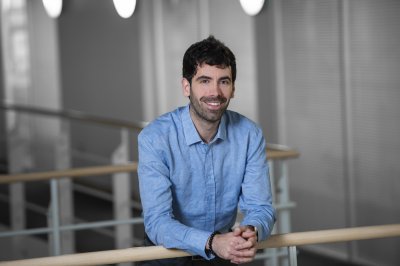
Nicola Andreij Rieg (pictured) is working with Dr Chris Jones and Dr Nikolas Thomopoulos to examine the impact of Covid-19 on habits, attitudes, and norms of University staff regarding travel to work and remote working. The study aims to uncover remote working experiences during lockdown and potential changes in commuting in the short-term and long-term future, and in this way inform new working guidelines towards providing better support for remote working and travel to work.
Creating virtual encounters with art in times of crisis
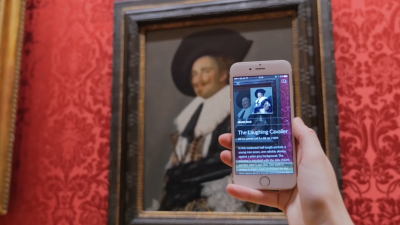
Professors Caroline Scarles, Gang Li, Drs Jason Chen and Husna Zainal Abidin are evaluating the impacts of virtual engagement with and experience of art during times of crisis. The objectives of this research project are as follows: firstly, to critique the shifts in visitor behaviour patterns throughout this time of crisis as they move from predominantly physical, on-site encounters with art, to engaging with art and curated tours through platforms such as Smartify; secondly, to evaluate the future opportunities for arts and heritage organisations in reframing existing business models to adopt greater virtual, greener and technology-led solutions for engaging with art galleries and associated exhibitions. This project is funded by the SME Innovation Voucher Scheme, in collaboration with Smartify.
Tourism recovery, risk and uncertainty
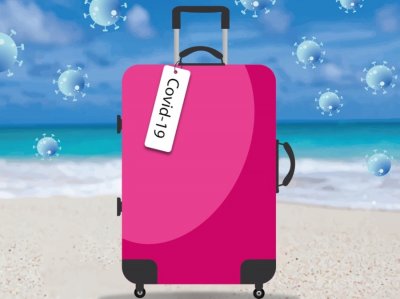
The School of Hospitality and Tourism Management has been awarded an ESRC grant of £175,000 to study how tourism intentions are shaped by Covid-19 risks and uncertainties. Professor Allan Williams, Professor Gang Li and Dr. Jason Chen, together with Professor Vladimir Baláž of the Slovak Academy of Science, will analyse how risk and uncertainty impact on the UK's inbound, outbound and domestic markets. The two-stage project will first analyse a specially commissioned survey of 17,500 potential tourists in the UK and its four main markets: France, Germany, USA and China. This will be followed by experimental research to assess how tourists respond to contrasting future Covid-19 health and containment scenarios.